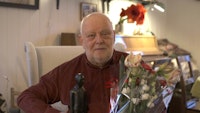Field of study: Music Education
Dag Jansson: Musical leadership

The Choir Conductor as Sensemaker and Liberator.
Summary
The conductor role is a complex and multi-faceted role. Yet, it has been researched only to a limited degree. The research tradition has a pedagogic bias, leaving less room for the conductor as an artist, co-musician, and team builder. Conductors´ own writing is more practice-based than research-based and naturally has an intentional view. Little attention has been given to the singer's viewpoint and the impact view: how do choral singers perceive the conductor's role and how is musical leadership experienced by those who actually produce the sounding music? This study investigates these questions, applying a hermeneutic-phenomenological method, aiming at capturing choral leadership as lived experience.
The study is based on in-depth interviews with 22 singers in Norway with college and university degrees in music.
The dissertation includes extensive and detailed interpretation of the interviews. Based on the themes that emerge from the interviews, three conceptualisations of choral leadership are proposed: (1) the legitimacy model, (2) the enactment model, and (3) the notion of elusive perfection. The legitimacy model deals with why singers want a conductor. The enactment model deals with the encounter between conductor and singers, and how musical leadership is experienced. The notion of elusive perfection captures the series of balancing acts conductors are continuously faced with and the observation that no stable solutions exist. The holistic approach of the study, taken from the singer's viewpoint, sheds new light on several ideals and conceptions about choral conducting that are often taken for granted.
The dissertation
Title: Musical leadership: the choral conductor as sensemaker and liberator.
The dissertation is a monograph, and it is written in English.
The dissertation is available in NMH's digital archive (nva.sikt.no)
Articles relevant
Published: Jan 6, 2017 — Last updated: Dec 18, 2025
